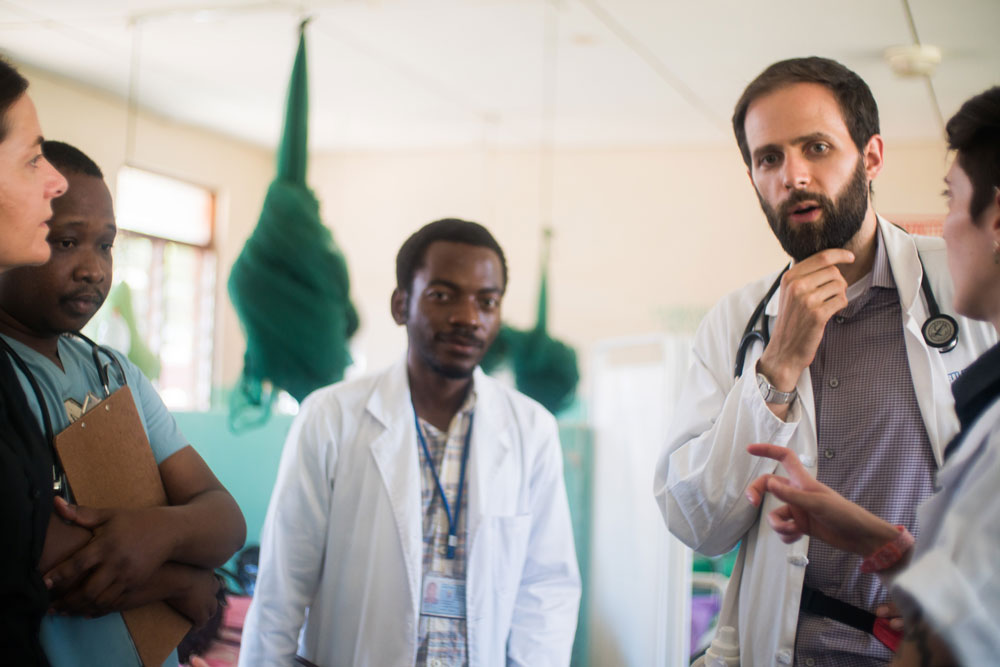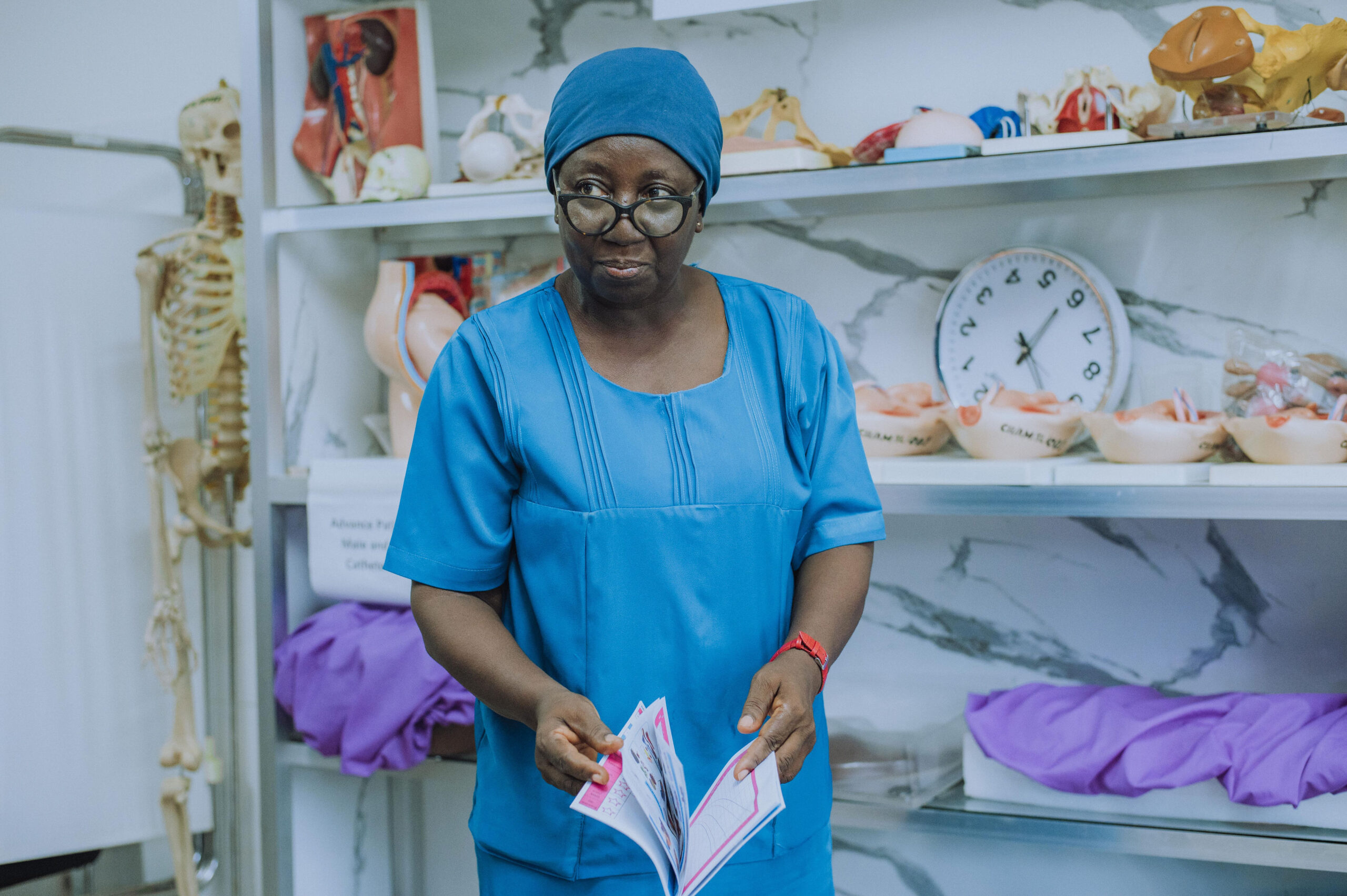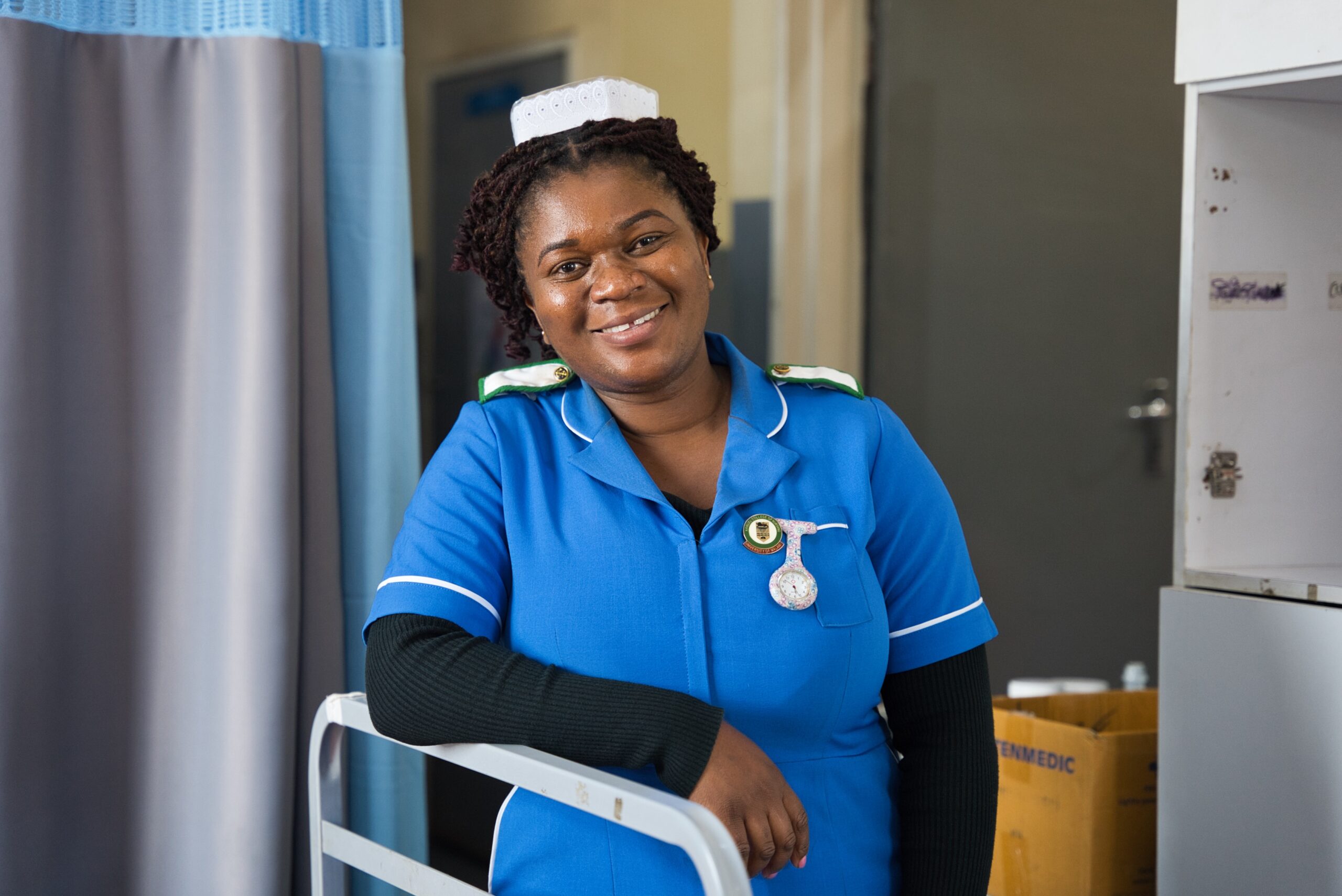Supporting the Family Medicine Specialty in Malawi
Over three years ago, Seed Global Health partnered with the University of Malawi, College of Medicine to help establish the first family medicine training program in the country. Led by a former Seed Educator, the partnership expanded and began working with Swedish Medical Center. It is through the exchange developed and coordinated by Swedish that Dr. Jacob Nettleton first went to Malawi as a family medicine resident. In 2018, he returned to the country as a Seed Educator to continue supporting the expansion of the specialty.
We spoke to Jacob about his experience, lessons learned, and the role family medicine plays in strengthening Malawi’s health system.
What inspired you to return to Malawi as a Seed Educator?
My career goal within medicine, since my undergraduate days, was to somehow be involved in global health equity. I tried to amass different training experiences abroad, as a medical student and resident, to make sense of all the work being done in the name of global health. I wanted to figure out what type of work was in line with the principle of justice and with the ethics that have developed around working in healthcare across borders and within complex power dynamics. Seed’s approach of supporting capacity building efforts in clinical education through human resources was the best I had seen.
Could you please tell us a little bit about your experience as a Seed Educator?
The element of my work that I most appreciate is its dynamic nature. Bedside clinical education is at the core of the work, but there is a lively mixture of classroom teaching, curriculum design, and professional/departmental development. My activities span the clinical education spectrum, as we work with medical students, post-graduate trainees, and other healthcare learners that fall into our orbit as we seek to model the multidisciplinary team. Our work often takes us to the College of Medicine in Blantyre to lecture and prepare students for their rural experience, but it is truly rooted at the rural district hospital—the home of family medicine.
I am proud to work in a setting that is foreign to most of the physician establishment (physicians are concentrated at the central hospitals in the city) but vital to the vision—shared by the Ministry of Health—of the family physician as a foundational role in strengthening the system through primary health care.
Our work continues to be a combination of service, satisfaction, frustration, joy, and a number of other emotions. To me, this signals that our collective efforts are contributing to something constructive. The only thing more rewarding than having the privilege of taking care of vulnerable people who are suffering is being able to teach while doing so.

How are you supporting the expansion of the family medicine specialty in Malawi?
Since 2011, the Department of Family Medicine at the College of Medicine has trained medical students in the discipline. Their rotation with us represents their sole clinical experience at the rural district hospital level. It is also their primary exposure to the physician role that the Ministry of Health endorses as a core part of strengthening the healthcare system through the district level.
Since 2015, the department has trained the pioneer family medicine post-graduate trainees, the first cohort of whom are scheduled to complete their training in a few months’ time. Teaching and training these learners, and modeling the role of the family physician, is core to my job. I hope that this work helps to build and strengthen the training pipeline for future family physicians.
Another facet of my role, through a partnership with Providence St. Joseph Healthcare in the United States, is to help coordinate and supervise visiting American family medicine residents who contribute to teaching in Mangochi. I also support the other half of the exchange which involves the Malawian family medicine post-graduate trainees spending time in the U.S. This collaboration strengthens the movement for the recognition of the potential benefit of family medicine to healthcare systems all over the world.
How do you see family medicine as core to strengthening health systems?
The vision, born from the pioneer family physicians who trained in South Africa and that is endorsed by the Ministry of Health, sees the family physician as a role that can help catalyze the transformation of the rural district hospitals into centers of clinical and teaching excellence. The broad training of the family physician would allow for teaching, patient care, and leadership that would strengthen the district—both the hospitals themselves and the rural communities they serve—as a more stable foundation for the healthcare system overall. It is indeed the rural areas and the district hospitals by which they are served—which see the most patients, the most births, and the most deaths within Malawi—that are the natural settings from which to build an improved system.
In your time in Malawi, what are some of the lessons that you have learned as an educator and a physician?
I have honed my ability to adjust teaching to the needs of trainees since there is a large range in skills and knowledge between cadres of learners. The potential gains from modelling multi-disciplinary care, I believe, are greater here. I’ve strengthened my faith in the importance of the fundamentals of the history and physical exam.
My experiences have also prompted me to broaden my conceptualization of the role of the family physician. I do feel even stronger that in all settings, one of the value-adds of the family physician is their deep perspective of the entire human life cycle and health care systems. This allows them to be clinician plus advocate, or clinician plus systems expert, or clinician plus master educator—we’re programmed and uniquely situated to be a clinician plus.

What can U.S. healthcare providers learn from health education, training, and practice in Malawi?
Despite their differences, there are shared challenges. For example, both settings share the challenge of building a training pipeline that will reliably care for unserved areas and incentivize clinicians to stay in those areas. Physicians in the U.S. could also hone their physical exam skills to match their counterparts who have to rely on them even more. But perhaps most importantly, we, as a healthcare community in the U.S., could match Malawi’s ambition in envisioning a coherent country-wide systems improvement based in primary health care. Both sides have a ways to go.
What is your most memorable experience as an educator?
There isn’t just one. Hearing the medical students go from not knowing what family medicine is at the start of their rotation, to having a handful express interest in devoting their careers to the rural district setting at the end, is validating every time. Hearing the post-graduate trainees exhibit great command of their craft, and a nuanced knowledge of their system, makes me happily look forward to a future when the pipeline of trainees will have been flowing for years, the family medicine department is run by its own graduates, and is at the center of a robust healthcare system.

